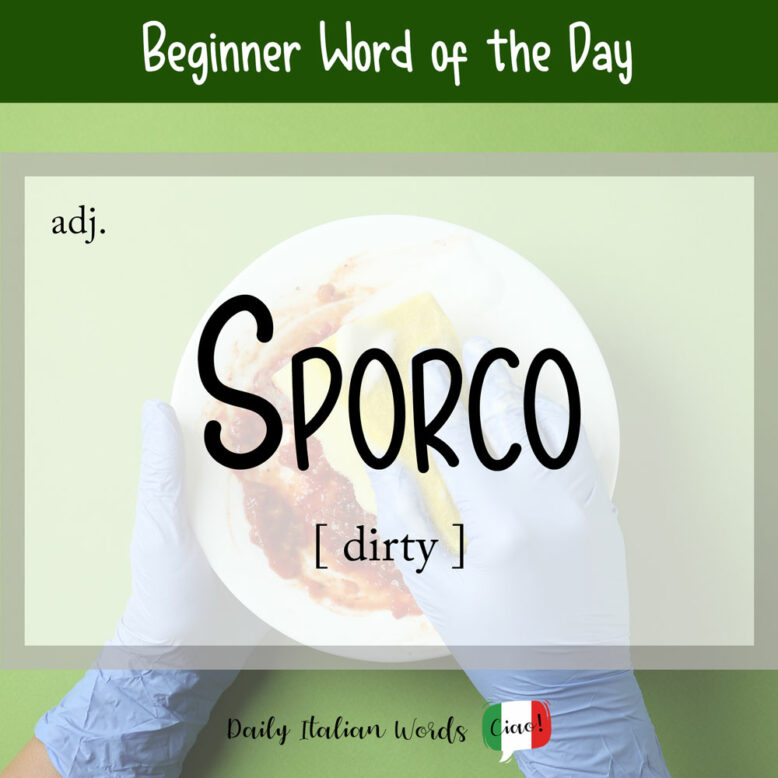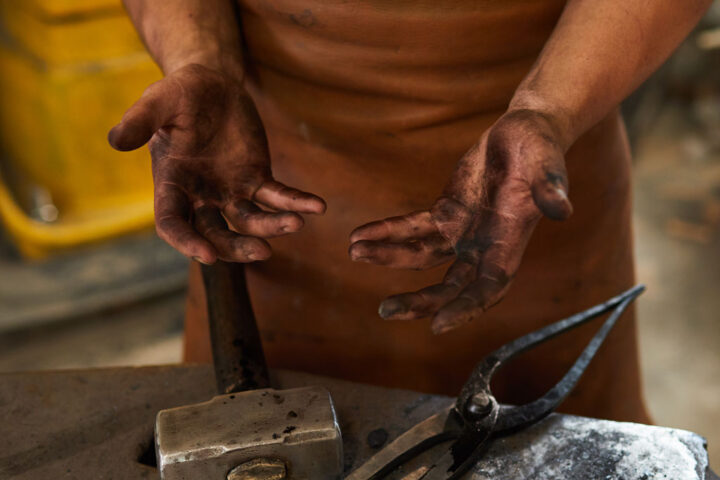If you have young children or a pet that likes to roll around in the mud, one word you simply cannot do without is sporco, the Italian word for dirty.

As with many adjectives, the ending changes depending on whether the subject is masculine, feminine or plural.
- sporco = masculine, singular
- sporca = feminine, singular
- sporchi = masculine, plural
- sporche = feminine, plural
Devo pulire la stanza perché è molto sporca.
I have to clean the room because it is very dirty.
It derives from the verbs sporcare meaning to (get) dirty and the reflexive sporcarsi (to get oneself dirty). Other related terms include sporcizia (dirtiness) and the rather humorous sporcaccione, which can be translated as dirty person or slob.
Sei un vero sporcaccione! Guarda che pasticcio che hai fatto!
You’re a real slob! Look at the mess you’ve made!

Just as in English, sporco can also be used in a figurative sense to refer to something that is dishonest, immoral or rude in nature such as:
- politica sporca = dirty politics
- denaro sporco = dirty money
- gioco sporco = dirty game, a game in which you play dirty
- avere la coscienza sporca = to have a guilty conscience (lit. to have a dirty conscience)
- farla sporca = to do something dirty, despicable
- avere la fedina penale sporca = to have a dirty criminal record
In sport, a tiro sporco is a shot or a kick that’s been badly executed.
Finally, sporco can refer to something indecent or obscene. Sporcaccione, that we saw a few paragraphs above, can describe a person who is vulgar or gross, and the adjective sporco can be used in the same way.
Era una barzelletta un po’ sporca ma molto divertente.
It was a bit of a dirty joke, but very funny all the same.
Heather Broster is a graduate with honours in linguistics from the University of Western Ontario. She is an aspiring polyglot, proficient in English and Italian, as well as Japanese, Welsh, and French to varying degrees of fluency. Originally from Toronto, Heather has resided in various countries, notably Italy for a period of six years. Her primary focus lies in the fields of language acquisition, education, and bilingual instruction.


